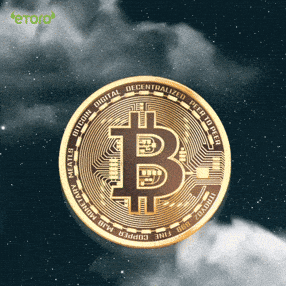
At 26, he launched a website that would change Bitcoin forever.
At 29, he was sentenced to die in prison.
Now after 10 years behind bars, President Donald Trump just released him.

Ross leaving prison after being pardoned
In 2011, the dark web was still a pretty wild frontier. That's when Ross Ulbricht, a libertarian physics graduate with a dream of free markets, created something unprecedented. Taking his name from "The Princess Bride," the Dread Pirate Roberts launched Silk Road - a marketplace that would forever change the face of cryptocurrency.
Silk Road was revolutionary in its simplicity. It combined two powerful technologies: Tor's anonymity for hiding the site's location, and Bitcoin's untraceable payments for hiding the money trail. Users could browse listings like they were shopping on Amazon, read reviews from other buyers, and have their purchases delivered right to their door. No dark alleys, no sketchy meetings.

The original vision? A free market experiment beyond government control. Ulbricht believed in personal freedom and voluntary exchange. But Silk Road quickly evolved beyond its idealistic roots. It became the largest dark web drug marketplace in history, processing millions in Bitcoin transactions when the cryptocurrency was worth pennies. Those commission fees added up: 144,000 Bitcoin, which would now be worth billions.
But empires built on digital anonymity can crumble from simple mistakes. Despite the sophisticated encryption and careful planning, Ulbricht's downfall came from basic errors in operational security. He had used his personal email - [email protected] - to promote Silk Road in its early days. That digital breadcrumb led FBI agents right to him.
On October 1, 2013, agents tracked Ulbricht to a public library in San Francisco. They needed to catch him logged in as the site's administrator to prove he was Dread Pirate Roberts. As he worked in the science fiction section, plainclothes agents staged a lovers' quarrel nearby. When Ulbricht looked up at the commotion, agents grabbed his laptop before he could close it. Game over.

Judge Katherine Forrest showed no mercy at sentencing: double life plus 40 years, with no possibility of parole. She wanted to send a message to anyone who might follow in his footsteps. The prosecution painted Ulbricht as more than just a website operator - they claimed he tried hiring hitmen to eliminate threats to his empire.
What they didn't reveal until later? One of those "hitmen" was actually DEA agent Carl Mark Force IV, who was using his position to extort Bitcoin from Ulbricht. Both Force and another corrupt agent, Shaun Bridges, later went to prison themselves. The supposed murder never happened.
Now ten years later, President Donald Trump has pardoned Ulbricht, calling his sentence "ridiculous" and praising the libertarian movement's support in brining more attention to his case. "The scum that worked to convict him," Trump posted on Truth Social, "were some of the same lunatics who were involved in the modern day weaponisation of government against me."
But Ulbricht's legacy lives on far beyond his prison cell. His technical innovation - combining Tor's anonymity with cryptocurrency payments - created the blueprint for modern cybercrime. Today's ransomware groups, dark web markets, and crypto launderers all follow the path he blazed.
The timing of Ulbricht's pardon is telling. For years, the government viewed cryptocurrency through the lens of Silk Road - as a tool for criminals. But the landscape is shifting. With Bitcoin ETFs approved and major banks embracing digital assets, yesterday's outlaw technology is becoming today's mainstream finance. Trump's pardon of crypto's most notorious pioneer might just signal a new chapter in the relationship between digital currency and government power.
One thing's certain: Ulbricht's creation changed finance forever. Whether that change leads to more freedom or more sophisticated crime may depend on what we learn from his story.
Don't Get Got!
P.S. Your experiences matter. If you've encountered a scam or hack and have insights to share, we invite you to connect with us. Let's build a community that stands against cyber threats.
